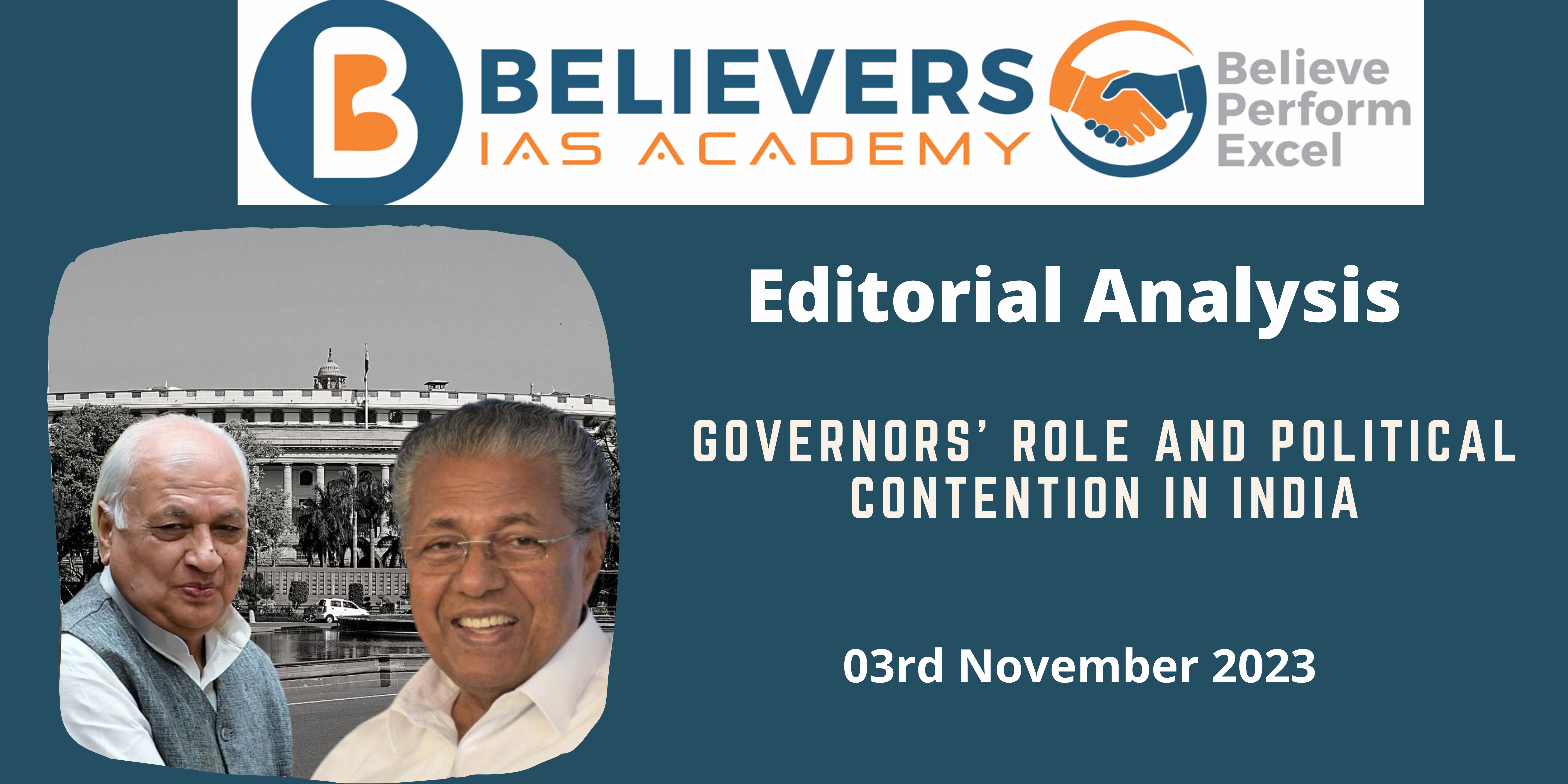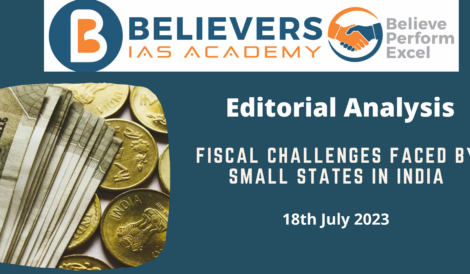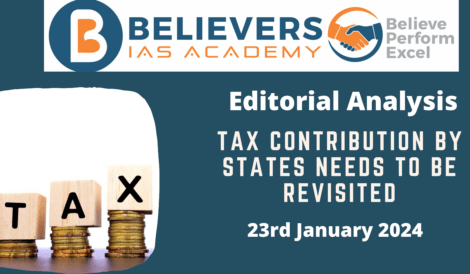Governors’ Role and Political Contention in India
Context:
The recent appeals lodged by Tamil Nadu and Kerala against the conduct of their respective Governors reflect a recurring issue of political appointees occupying Raj Bhavan and wielding authority that impedes or undermines decisions made by elected governments. Governors, political appointees in the states, are accused of delaying the approval of Bills passed by the legislature. Their actions have raised concerns, especially in states not aligned with the ruling party at the national level, where they are seen as obstructing legislative processes or decisions.
Relevance:
GS-02 (Governor)
Mains Question:
What role do Governors play in the Indian political landscape, and how does the issue of their political appointments impact the functioning of elected governments in the states? (150 words)
Dimensions of the Article:
- Governors’ Role and Political Interference
- Impeding Legislative Decisions
- Defining the Limitations of Governors
Governors’ Role and Political Interference:
- Governors, appointed to uphold constitutional principles, often involve themselves in decisions that seem to challenge the functioning of elected governments. Tamil Nadu and Kerala’s grievances highlight the delay in assenting to Bills passed by the legislature and the hold-up in approving various proposals, including the grant of remission, sanctioning prosecutions, and appointments to state commissions.
- There is a growing concern about the authority exercised by Governors, particularly when decisions tend to diminish or limit their own powers. The issue emerges notably when proposed amendments aim to exclude chancellors (who are generally the Governors themselves) from the process of appointing vice-chancellors or establishing new universities without their direct involvement.
Impeding Legislative Decisions:
- Governors play a crucial role in assenting to Bills passed by the legislature. The absence of a stipulated timeframe for granting assent is frequently exploited by some Governors to stall or thwart the implementation of passed laws.
- The Supreme Court has highlighted the significant constitutional content of the phrase “as soon as possible” mentioned in Article 200 of the Constitution. It warned against Governors unduly withholding decisions on Bills, emphasizing that an indefinite delay without a decision is unconstitutional.
Defining the Limitations of Governors:
- The issue raises concerns regarding Governors overstepping their boundaries defined by the ‘aid and advice’ clause in the Constitution. It is evident that Governors must adhere to the advice of the council of ministers while exercising their discretionary powers.
- Their actions, perceived as a misuse of this discretionary space, highlight the need for clearer protocols and timelines for their decision-making process.
Way Forward and Conclusion:
- There is a pressing need to establish a national prohibition that prevents Governors from assuming the role of the chancellor in any university.
- The recommendation by the Justice M.M. Punchhi Commission on Centre-State relations underlines this necessity. Furthermore, a defined and transparent framework should be implemented to guide Governors in their role in approving or disapproving Bills. States should aim for more diligence and prudence in their legislative process, thereby minimizing the scope for questioning the merit of their decisions.
- Governors need to exercise their discretion within the boundaries set by the Constitution, adhering to the advice provided by elected governments.
- The issue of Governors’ actions impeding legislative decisions requires urgent rectification through clear constitutional guidelines. Addressing these concerns is essential to safeguard the democratic functioning of the elected governments and prevent any undue influence on state legislative processes.




